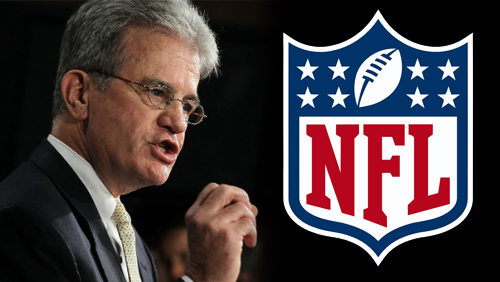 Oklahoma senator Tom Coburn probably won’t be getting any Christmas cards from NFL commissioner Roger Goodell this year. Hell, he probably won’t get one in the next five years if he succeeds in stripping the NFL of its tax-exempt status.
Oklahoma senator Tom Coburn probably won’t be getting any Christmas cards from NFL commissioner Roger Goodell this year. Hell, he probably won’t get one in the next five years if he succeeds in stripping the NFL of its tax-exempt status.
Hard as it is to believe that the NFL, the billion-dollar business that it is, enjoys a tax-exempt status, it does. That was part of the deal that was struck way back in the 60’s by then commissioner Pete Rozelle, who somehow successfully earned tax and antitrust exemptions for the merger of the NFL and the AFL.
As per Section 501(c)(6) of the Internal Revenue Code, exemptions are provided for “business leagues, chambers of commerce, real estate boards, boards of trade and professional football leagues, which are not organized for profit and no part of the net earnings of which inures to the benefit of any private shareholder or individual.”
So for the last how many decades, the NFL, despite making billions annually, is a tax-exempt organization and hasn’t paid any federal income taxes. Hot damn.
That’s where Coburn enters the picture. According to The Newark Star-Ledger, Coburn has crafted an amendment that would strip the NFL, NHL and PGA of their tax-exempt status. About damn time, senator.
“Based on the publicly available information about the NFL and NHL alone, [revoking] non-profit status may generate at least $91 million of federal revenue every year,” Coburn said.
That’s not chump change; $91 million in federal revenue can go some way in funding whatever kind of project the government decides to do. Technically, the NFL falls under the parameters of a tax-exempt organization. But even if it does, it doesn’t mean that it should be, especially with the amount of money the league and its team owners are making annually.
To be fair to the owners, they operate as for-profit companies and pay their taxes. But the league that they belong to doesn’t. Look at it this way: if, say, you earn $100,000 a year on your job. At least a third of that goes to Uncle Sam, right? NFL executives, on the other hand, get paid in the millions, including the $11.6 million Roger Goodell earned in 2012. Guess how much of that he sends to the federal government?
No need to count to arrive at the answer on that one.
Tom Coburn wants to change that and he’s crafted an amendment called the Property Reducing Overexceptions for Sports Act (PRO Sports Act). Basically, he wants to cut the NFL’s tax exception because the money that the government stand to get from it is pretty significant, especially when you can send that money to alleviate the plight of less fortunate citizens in the country.
Consider an example thrown in by the Newark Star Ledger: NFL teams pay the league $6 million in annual membership for a total amount of $192 million. But the teams write off those payments as “charitable donations”, which the league then tucks away into a stadium fund that provides owners interest-free loans for as long as they can come up with public financing for their new or renovated stadiums. Here’s where it gets a little dicey: taxpayers are left paying for financing for new stadiums while also losing out on federal tax revenues. And when the new stadiums are built, it’s the owners’ pockets that get filled to the brim.
Whether or not Coburn becomes successful in stripping the NFL of its tax-exempt status remains unknown. Rest assumed, the league won’t take this sitting down and it’s going to flex its proverbial Capitol Hill muscles to ensure that Coburn’s amendment gets thrown out faster than a ref can throw his yellow flag into the field.
But at least someone’s willing to go toe-to-toe with the mighty NFL. And for that, Senator Coburn has our respect.
“The NFL marks and designs are exclusively owned by NFL, its affiliates and subsidiaries. Calvinayre is not in any way affiliated with the NFL. Use in this website is for news and commentary purposes only. No trademark or copyright infringement intended.”